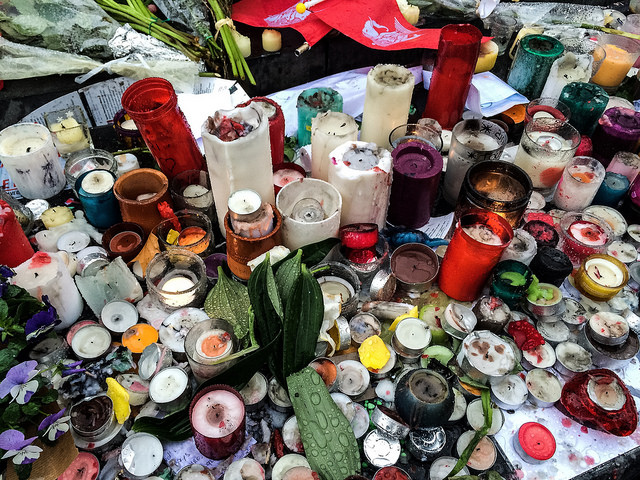Attack after Attack, a Scared Europe: What now?
 https://flic.kr/p/ACpggz
https://flic.kr/p/ACpggz
What we need to keep in mind as well as address:
In a recent interview on the very popular TV show On est pas couché, Najat Vallaud-Belkacem, ex-French minister of education, was accosted by a so-called journalist over the alleged changes in the curriculum with regards to spelling. Without skipping a beat the ex-minister burst into folly over the lack of research journalists put into programs and how she was the recipient of fake news,”‘news” which have gone as far as accusing her of making Arabic obligatory in French schools. This outburst is telling as news are feeding into narratives and are often responsible for them. It is worth noting that this journalist was not fired, and that in a way, normalizes the distribution of fake news.
Political parties (Front National and UKIP, for example) are linking immigration and terrorism together to help pass their policies. The people suffering the most from extremists are Muslims, and Europeans should do well to remember that these attacks are not limited to other religious faiths. On top of that, European Muslims experience Islamophobia through blatant racism as well as disguised xenophobia. One cannot deny the racialization of the issue, where people of colour, Muslims, and their intersections experience intense segregation. It is the duty of us all to make a conscious effort to educate ourselves about such experiences.
